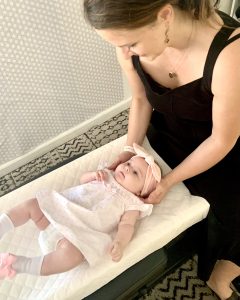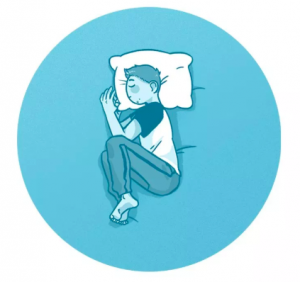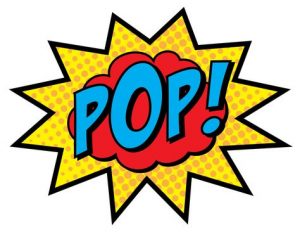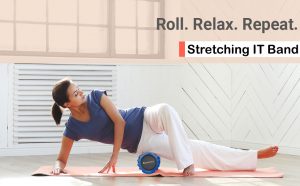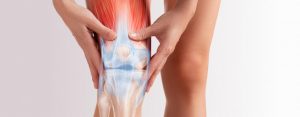
A pop sound in the shoulder can be painful and uncomfortable. Sometimes, moving your shoulder can cause a clicking sound or a popping sensation near the ligaments at the top of your arm. That pop or crack that you feel is called crepitus.
Most times, the result of shoulder popping can be unsettling. The pain can be a symptom of a medical condition or injury. The shoulder is one of the most complicated parts of the skeletal system; two joints offer movement to the shoulder, including the glenohumeral joint, where the long bone in the upper arm fits into the shallow socket, which is the ball-and-socket joint.
Shoulder popping, injuries, and stiffness are some of the most common muscle and joint problems that bring people to a chiropractor.
What causes shoulder Popping?
The humerus bone of the shoulder fits under the scapula or the shoulder blade, and the four muscles called the rotator cuff joins them. The whole structure is called the labrum, which is a thick band of tissue that surrounds the shoulder socket and keeps the shoulder joint stable. It connects the socket part of the scapula (called the glenoid) with the head of the humerus.
The shoulder is connected to allow the arm to move freely, which is the same anatomy that allows the arm to be more vulnerable to injury than other joints. These are some of the common causes of the shoulder popping sounds you hear in your shoulder.
Labral tears
Tough connective tissues make up the labrum that can become torn due to stress, age, or injuries. It is essential to know that labral tears are unsettling. These tears can create a popping or grinding sound when you want to use your shoulder for a task. Additionally, labral tears start constant pain and discomfort.
Osteoarthritis
Osteoarthritis is one of the primary forms of arthritis. It is also essential to know that as you age, the cartilage that keeps your bones from rubbing each other can begin to wear out. Osteoarthritis occurs when the protective cartilage that cushions the ends of the bones wears down over time. A cracking or popping sound may mean your bones are rubbing each other. The sound of crackling or grating can be an early sign of arthritis.
Scapulothoracic bursitis
The bursa, which is a fluid-filled sac, safeguard the joints. Patients feel sharp pains or warmth and hear a “pop” when the bursa becomes inflamed. This condition is referred to as snapping scapula syndrome.
Osteochondroma
Osteochondroma, a benign growth in the shoulder, can cause a pop or sometimes crack in the shoulder. Most times, people with this growth do not develop any other symptoms.
Cavitation
Occasionally, the shoulders can quickly release gas from the joints when we raise it, just like when we crack our knuckles. This type of sound is connected to cavitation.
Shoulder fracture
Car accidents, contact sports, or a fall, and other reasons can cause a shoulder fracture. Even though the pain of the injury may be long gone, an infrequent grinding and popping sound might be a permanent side effect.
It’s also essential to know that when the bones join after being separated for a very long time, shoulder blades or ribs create ridges. However, these ridges can brush against the muscles and make a pop sound.
Shoulder popping and pain
Your tendons and bones can make a popping or cracking sound even when they are perfectly fine; crepitus doesn’t always cause pain and discomfort. But when your shoulder pops and you feel pain afterward, this is a sign of a health problem. Additionally, if the pain you experience accompanies a recent injury, they might be an internal muscle tear or strain that needs treatment.
If you don’t seek the attention of a chiropractor, the intricate system of your muscles, ligaments, or tendons that holds the joint of your shoulder together can become weakened.
Treating shoulder pain
The common ways to treat recurring shoulder pain are chiropractic adjustment of your bones, massage therapy, physical therapy, anti-inflammatory medications, and corticosteroid injections.
In some cases, home remedies might help to treat shoulder pain. Nevertheless, if your shoulder pops or cracks, you might try reaching out to a chiropractor or use home remedies such as:
Posture
Sitting straight up while working on your computer or driving may make a big difference in how your shoulders feel. Good posture can stop shoulder pain.
Cold compress
If you have shoulder pains resulting from injuries, apply a cold compress or ice to reduce swelling/inflammation. Performing a cold compress can help make your injury heal much faster.
Yoga
According to research, yoga may be useful to minimize and improve shoulder pain. This exercise adds great benefits to improve your posture and breathing.
Foam roller
Foam rollers are inexpensive, and they are frequently purchased for home use. Rollers help to stimulate the soft tissues in your shoulder. It can also help ease the pain in your shoulder. If your shoulder causes pain, try to sit all day to help ease the pain. This type of manual therapy goes a long way to help your shoulder problems.
These home therapies can also lead to recovery from a shoulder injury. If these methods don’t work, please contact a chiropractor.
When to see a chiropractor
Seeing a chiropractor when your shoulder pops is very important. Chiropractors at Custom Chiropractor can help treat this problem. Note that successful rehabilitation is time-sensitive, and having professional help at an early stage can help improve the process. Also, following a treatment plan from us consistently can go a long way to enhance your rehabilitation.
Our experienced chiropractors can recommend exercises that you can do at home or at work, which can only take a few minutes daily.
Furthermore, if a pop or crack in your shoulder causes pain and swelling, please visit our chiropractic center today, or contact us to book an appointment.
